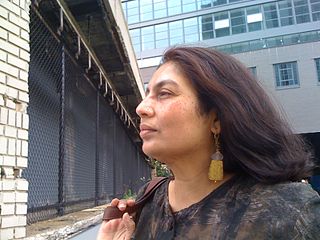A Quote by Sara Pascoe
If you view history as a backdrop, set-dressing or fiction, then 'Pride and Prejudice' is hugely entertaining. My reread saw the misery of the female characters' reality. My new reaction was sadness and fury. Knowledge ruins everything!
Related Quotes
I liked the idea of giving Eligible a feminist flavor. While I do think that in Pride and Prejudice, Liz Bennet is very bold, she is also very restricted in terms of what's appropriate for her to do and the ways it's appropriate for her to behave. One of the differences between Pride and Prejudice and Eligible is that my female characters take more initiative in their romantic lives.
Each of us carries around those growing up places, the institutions, a sort of backdrop, a stage set. So often we act out the present against the backdrop of the past, within a frame of perception that is so familiar, so safe that is is terrifying to risk changing it even when we know our perceptions are distorted, limited, constricted by that old view.
If one does not make human knowledge wholly dependent upon the original self-knowledge and consequent revelation of God to man, then man will have to seek knowledge within himself as the final reference point. Then he will have to seek an exhaustive understanding of reality. He will have to hold that if he cannot attain to such an exhaustive understanding of reality he has no true knowledge of anything at all. Either man must then know everything or he knows nothing. This is the dilemma that confronts every form of non-Christian epistemology
Plot involves fragmentary reality, and it might involve composite reality. Fragmentary reality is the view of the individual. Composite reality is the community or state view. Fragmentary reality is always set against composite reality. Virginia Woolf did this by creating fragmentary monologues and for a while this was all the rage in literature. She was a genius. In the hands of the merely talented it came off like gibberish.
Science fiction is the most important literature in the history of the world, because it's the history of ideas, the history of our civilization birthing itself. ...Science fiction is central to everything we've ever done, and people who make fun of science fiction writers don't know what they're talking about.
SADNESSES OF THE INTELLECT: Sadness of being misunderstood [sic]; Humor sadness; Sadness of love wit[hou]t release; Sadne[ss of be]ing smart; Sadness of not knowing enough words to [express what you mean]; Sadness of having options; Sadness of wanting sadness; Sadness of confusion; Sadness of domes[tic]ated birds; Sadness of fini[shi]ng a book; Sadness of remembering; Sadness of forgetting; Anxiety sadness.


































